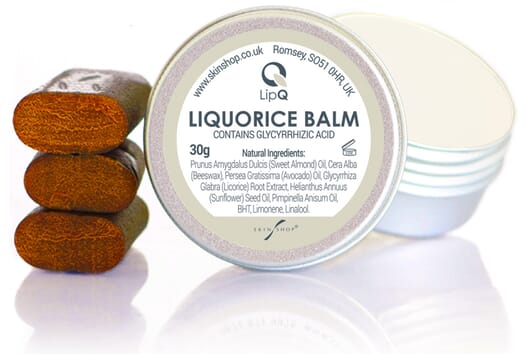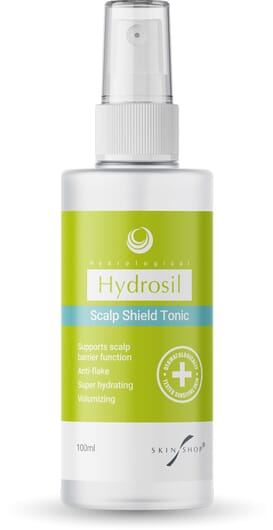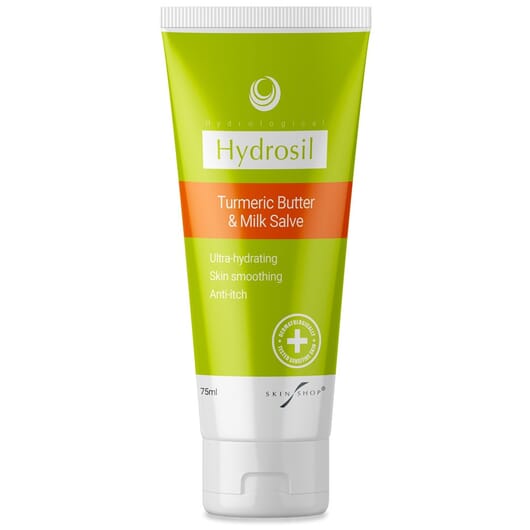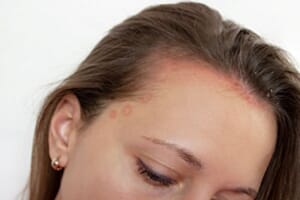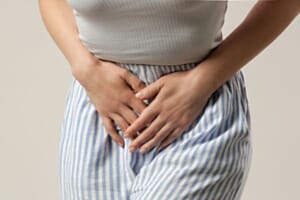A recent OnePoll study of 2,000 adults has found a huge 42% of Londoners often struggle with dry skin.
The main culprits for this dry skin epidemic in the UK’s capital according to the skin survey were Londoners showering habits plus cold dry UK weather.
The research found that a whopping one in 10 adults living in London experience dry skin ‘all the time’.

Consultant dermatologist Dr Eva Melegh gives her expertise and advice on what causes dry skin from London living and tips to prevent it.
“City living, especially in a mega city like London, is harsh on skin. The UK climate is typically low in humidity and cold plus the hardness of the water in London also doesn’t help matters and explains why Londoners in particular suffer so much from dry skin,” says Dr Melegh.
“The pollution, central heating and air conditioning inside offices, accommodation and public buildings coupled with frequent showering in hot hard water is a perfect storm for dry skin. Add the UK’s low humidity biting cold winter months and dry high UV index weather in the summer months and it’s no wonder Londoner’s skin is suffering more than most.”
Dr Melegh’s gives her top 4 tips to help prevent the most common types iof London dry skin;
1. London Dry Feet
Believe it or not people tend to do more walking in large cities than they do in the countryside, so London feet get a real battering.
Unlike when hiking in the countryside, often people are walking thousands of steps a day in London wearing unsuitable work shoes rather than hiking boots.
Blisters, chaffing, sweating and sole friction are all typical foot issues for London feet. Plus walking on concrete heated up by the sun and general traffic pollution can also mean that London feet are often hot as well as being bashed about by unforgiving office footwear.
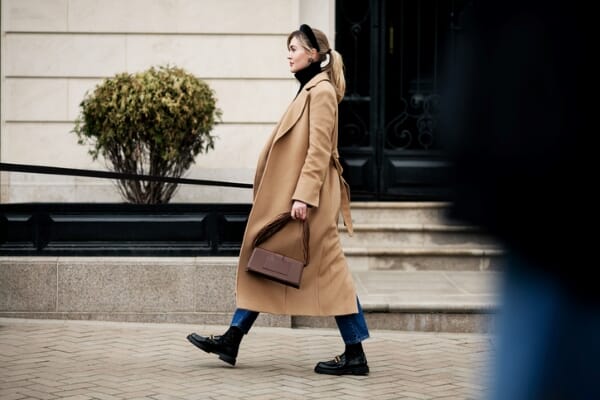
All this can lead to dry, swollen and broken feet.
Wearing any footwear that leaves parts of the foot exposed to city elements is best avoided, especially any footwear that leaves heel or toes exposed.
Synthetic insoles are also not ideal as they don’t breath and create more chaffing and friction. Investing in a pair of leather and padded insoles for work shoes can make a huge difference for preventing city dry feet.
Thin cotton and silk mix socks are also an excellent preventative for city dry feet as they reduce both sweat and friction, which are two of the main triggers for eczema flares.
Always thoroughly moisturising feet before putting them into socks makes a world of difference. Repeating this process at night and wearing thin cotton socks overnight can also help prevent overnight foot dryness.
2. London Dry Scalp
The scalp is often one of the first places where dry skin manifests itself when living in a large city like London.
The pollution and soot that clings to hair can inflame the scalp. Inflammation of the scalp can damage scalp barrier function and cause TWL (transdermal water loss). The more frequent washing of hair due to the pollution and soot using hot hardened London water can then dry out the scalp further. The subsequent itching and scratching of the scalp can then cause further damage to scalp barrier function causing more TWL. It’s a vicious cycle that needs to be broken if the scalp is to recover.
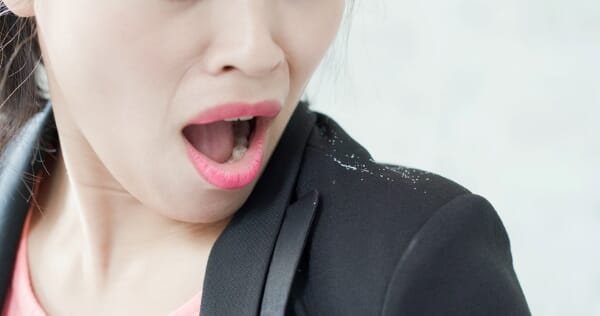
Dry scalp dandruff is different to normal fungal dandruff. Dry scalp dandruff causes small dry white flakes and is accompanied by a very itchy scalp. Fungal dandruff causes larger more greyish greasy flakes and its typically not that itchy.
Dry scalp dandruff will likely to be made considerably worse by anti-dandruff shampoos. It’s crucial to swap to a shampoo and hair products that do not contain solvents like most normal OTC shampoos and which are designed to reduce inflammation of the scalp and repair scalp barrier function.
Hydrosil Scalp Shield Shampoo and leave-in Scalp Shield Tonic are both designed for treating dry scalp dandruff and irritation and contain plant-based equivalents to steroids to reduce scalp itching plus plant-based prebiotics to help repair and replenish scalp barrier function.
3. London Dry Lips
Dry lips are an issue for city dwellers because the lack of quality clean air outside and air conditioning inside combined with low humidity in climates such as London means that lips dry out quickly.
Matt and long-duration lip sticks often worn for workwear also add to the problem along with dehydration from city perspiration. We also lick our lips more frequently when stressed so commuting and work stress of city living is mean on lips.
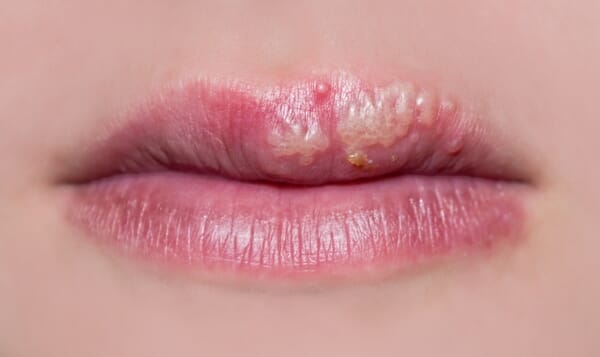
50% of the UK population carry the herpes simplex virus that causes cold sores, and cold sore sufferers are more concentrated in heavily populated areas such as London as cold sores are passed on through saliva from a person with a live cold sore.
Dry cracked lips and stress are the two main cold sore triggers which means cold sores are a common occurrence for Londoners.
Cold sore preventation treatments are few and far between as most cold sore treatments from the chemist as only for once a cold sore rears its ugly head. A lip balm that has been trialled by the Herpes Virus Association and shown to have a preventative effect on cold sore outbreaks is Lip Q Liquorice Balm containing a concentrated extract of glycyrrhizic acid (liquorice root) which published research has shown interferes with the production of proteins that feed the cold sore virus. Being a natural lip balm it also keeps lips moisturised and conditioned to help prevent dryness and chapping.
4. London Dry Hands & Legs
Shaving and waxing plus low humidity and pollution makes London legs particularly vulnerable to dryness. Hands that are constantly exposed to the elements, constantly in use and constantly being washed are also targets for city dry skin.
Disinfectant hand washes are quite essential when trying to avoid getting germs from city living but they pay havoc on skin. What can be helpful to reduce the need for hand sanitisation is to wear thin cotton gloves when travelling in public transport and touching communal surfaces and then removing them once at your destination. Similarly trying not to use your phone or tablet keypad while on public transport can also lessen the need for hand sanitisation.
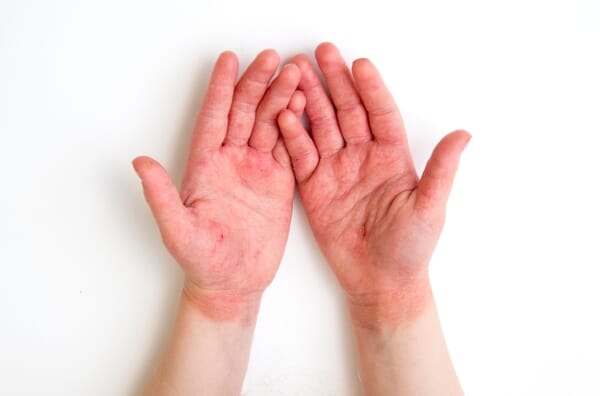
For legs daily gentle exfoliation of dry leg skin with a non-perfumed exfoliant can help increase skin cell turnover.
Try turning down the heat on your shower and use tepid rather than hot water and shower as quickly as possible.
Use a salve rather a moisturiser on lower legs, hands, knees and elbows as salve’s tend to be more intensive and stay longer on the skin. A salve that contains anti-inflammatory as well as moisturising ingredients can help stop dry skin becoming irritated and itchy too, which can make the problem worse.
Hydrosil Turmeric Butter & Milk Salve is a non-perfumed skin salve that contains turmeric and donkey milk. Turmeric is well-researched for its anti-inflammatory effects, the issue is that it doesn’t pass easily across the skin barrier so in topical form it often doesn’t get enough ingredient into the skin to be that effective. However, when whipped in high concentrations into a butter in the patented turmeric butter in this salve, it appears to have solved this issue. Donkey milk is the most hypoallergenic of all milks and so this donkey milk salve is ideal for soothing and moisturising on dry, sensitive and atopic skin.




